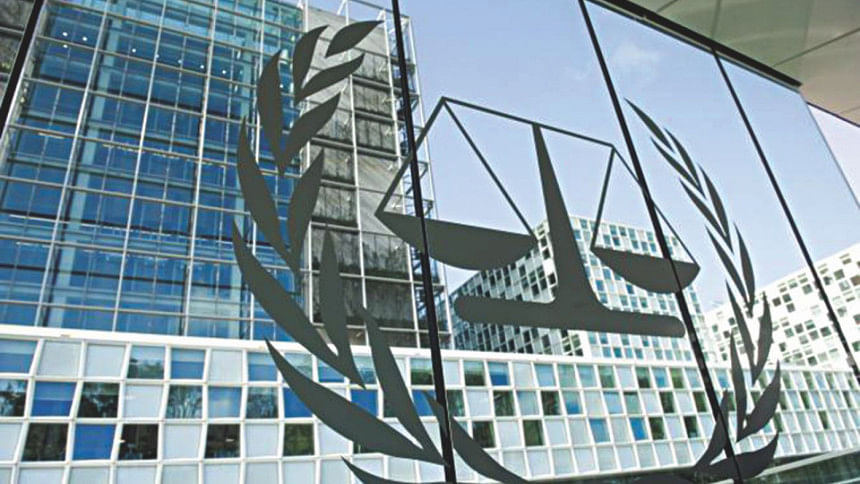Compensatory justice to the victims of war

Soon after the Second World War, by constituting the Charters of the Nuremberg Tribunal (1945) and Tokyo Tribunal (1946), the world community expressed their resentment against horrors of war crimes, crimes against peace and humanity. By bringing key perpetrators to justice, they deconstructed the plea of impunity in the name of “sovereign immunity”. However, justice so dispensed was retributive in nature, intended only to be an example in discouraging succeeding war. Nevertheless, wars occurred and war crimes took place. Eventually, international judicial authorities came into play in Yugoslavia (1993), Rwanda (1994) and the Hague (2002) to prosecute international crimes. In compare with other forums, the International Criminal Court (ICC) so established in the Hague is unique in providing: (i) victims participation in proceedings, and (ii) reparations to victims and their families.
Article 68(3) of the ICC statute provides that where personal interests of the victims are affected, the Court may permit their views and concerns to be expressed and considered at appropriate stages of the proceedings in a manner which is not inconsistent with accused's rights and fair trial.
Article 75 permits the Court to make reparation order against a convicted person specifying appropriate reparations to, or in respect of, victims, including restitution, compensation and rehabilitation. In appropriate cases, the Court may order reparation award from the Trust Fund created under Article 79. Before making such order, the Court may invite and take account of representations from or on behalf of the convicted, victims and other interested persons or states. Moreover, to execute reparation order, the ICC may, in cooperation with state parties, take initiative for identification, tracing and freezing or seizure of proceeds, property and assets and instrumentalities of crimes for eventual forfeiture (Article 93).
Since its inception, the ICC has been allowing victims' participation in legal proceedings. But the issue of reparation remained in abeyance until 24 March 2017, when in The Prosecutor vs. Germain Katanga (ICC-01/04-01/07), the Trial Chamber II issued an order awarding individual and collective reparations to the victims of crimes committed by Germain Katanga on 24 February 2003 during an attack on the Bogoro village, in Ituri district of Congo. On 23 May 2014, Germain Katanga was sentenced to 12 years imprisonment after being found guilty, as an accessory, of one count of crimes against humanity (murder) and four counts of war crimes (murder, attacking a civilian population, destruction of property and pillaging).
Upon hearing of reparation claims, the Trial Chamber II awarded 297 victims with a symbolic compensation of $ 250 per victim who lost relatives, property or livestock or suffered psychological harm.
However, The Prosecutor vs. Thomas Lubanga Dyilo (ICC-01/04-01/06) was the first ICC case to witness some form of symbolic compensation even before the case of Germain Katanga. On 10 July 2012, Congolese warlord Thomas Lubanga was sentenced to 14 years imprisonment for war crimes of enlisting and conscripting children under the age of 15 years and using them to participate actively in hostilities. On 21 October 2016, in reparation claims hearing, judges approved plan for “symbolic reparations” to create a “living memorial” to remember and raise awareness about child soldiers. The plan for symbolic reparations includes (i) construction of “symbolic structures”, in the form of commemoration centers that will host interactive symbolic activities in communities, and (ii) to develop “mobile memorialization” initiatives in communities to promote awareness raising of the crimes and resulting harms, reintegration, reconciliation, and memorialization. However, decision on non-symbolic collective reparations is pending.
Hence, by recognising (i) “proportional” and “symbolic” reparations, and (ii) “individual” and “collective” claims for reparation, the ICC has transcended the earlier notion of justice in the trial of international crimes. A transformation towards reparation as demonstrated in Katanga and Lubanga cases is a positive gesture in restoring the wrongs suffered by the victims. The national and regional judicial forums prosecuting international crimes may lineup in this transformation. No doubt, the amount so awarded by the ICC, does not represent reparations for all the crimes committed by Germain Katanga, nonetheless, “it is a very significant symbol that will comfort victims and help ensure the social reintegration of survivors”.
Before it is too late, the Parliament of Bangladesh may revisit the International Crimes (Tribunals) Act 1973, so as to enable the Prosecution and International Crimes Tribunal-1 to incorporate the precedent imparted by the ICC, and thus to dispense compensatory justice to the victims of 1971 liberation war.
THE WRITER IS AN ASSISTANT PROFESSOR OF LAW, JAHANGIRNAGAR UNIVERSITY.

 For all latest news, follow The Daily Star's Google News channel.
For all latest news, follow The Daily Star's Google News channel. 



Comments